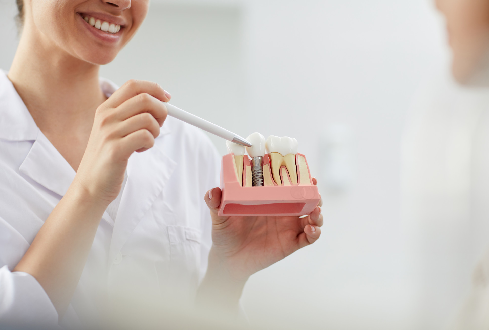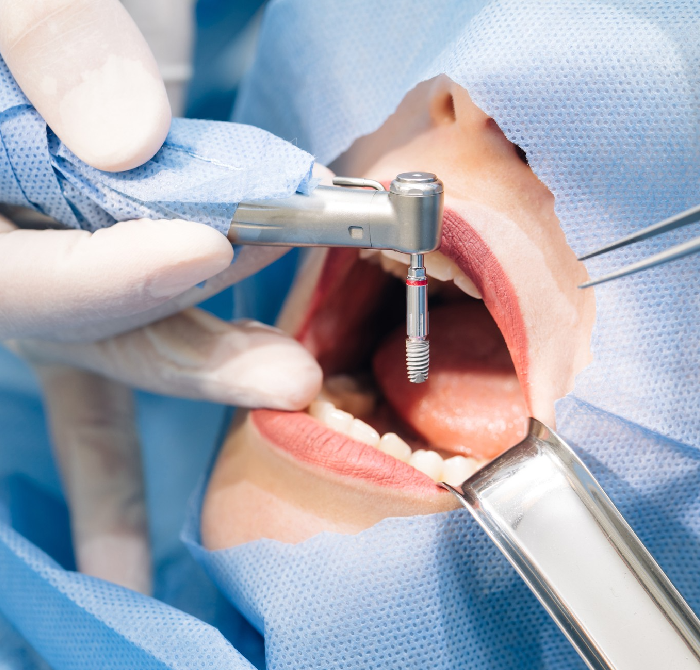





Dental implants are medical devices surgically implanted into the jaw to restore a person's ability to chew or their appearance. They provide support for artificial teeth, such as crowns, bridges, or dentures.
When a tooth is lost due to injury or disease, a person can experience complications such as rapid bone loss, defective speech, or changes to chewing patterns that result in discomfort. Replacing a lost tooth with a dental implant can significantly improve the patient's quality of life and health.
Dental implant systems consist of a dental implant body and dental implant abutment and may also include an abutment fixation screw. The dental implant body is surgically inserted in the jawbone in place of the tooth's root. The dental implant abutment is usually attached to the implant body by the abutment fixation screw and extends through gums into the mouth to support the attached artificial teeth.
There are a few different types of dental implants that you can choose from depending on your needs. A single-unit dental implant is designed to replace a single lost tooth in your mouth. A multi-dental implant configuration is one where a limited number of implants support multiple artificial teeth. For a full mouth of artificial teeth, you may only need eight implants to act as a foundation for up to 32 new teeth.



Most often, a dental implant is used to replace a single missing tooth. It requires one post and one crown.
When you have multiple missing teeth adjacent to each other, you may find your best option is an implant-supported bridge.
An implant-retained denture is used when a person doesn't have any teeth in the jaw, but they have enough bone in the jaw to support implants. If you have missed a majority or all of your teeth in an arch (upper or lower), then an implant-retained denture may be your best option.











There are more than 150 companies located in different countries producing implants and their components. Few companies like Nobel Biocare, Straumann Osstem, and dentium have conducted significant scientific research into the reliability or longevity of their implants. These brands prefer superlative quality materials and are in business for a long and hence, their product costing is on the higher end as compared to ones that are new in the market.
The powerful chewing action of the mouth exerts high pressure on your jawbone, and if it is not strong enough or too soft to support the implant, then it will likely lead to failure. Hence, you may need bone grafting before your dental implant surgery. This will create a more solid base for the implant. It may take several months for the transplanted bone to grow new bone which will support a dental Implant. There are types of bone graft materials such as natural bone grafts, or synthetic ones that are used to rebuild a jawbone.
The next step after implants is the placement of an artificial crown or bridge. Usually, each crown is attached to its dental implant. However, implants are exceptionally strong, thus several teeth can also be replaced by one implant if they are bridged together. The cost for this depends on what type of crown/bridge material you choose. At Oasis Dental Care, we are dedicated to providing our patients with the highest quality Dental Implants.